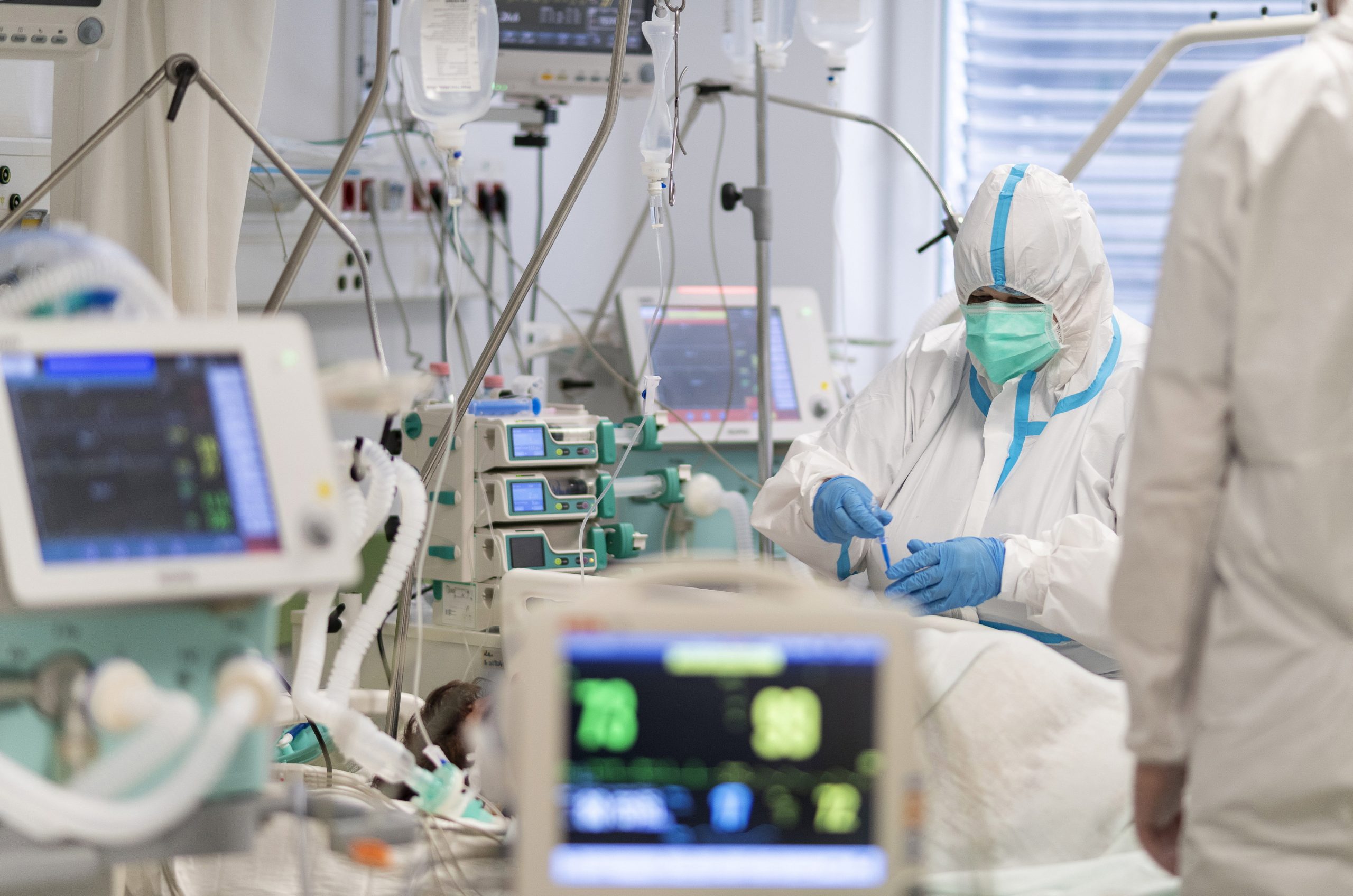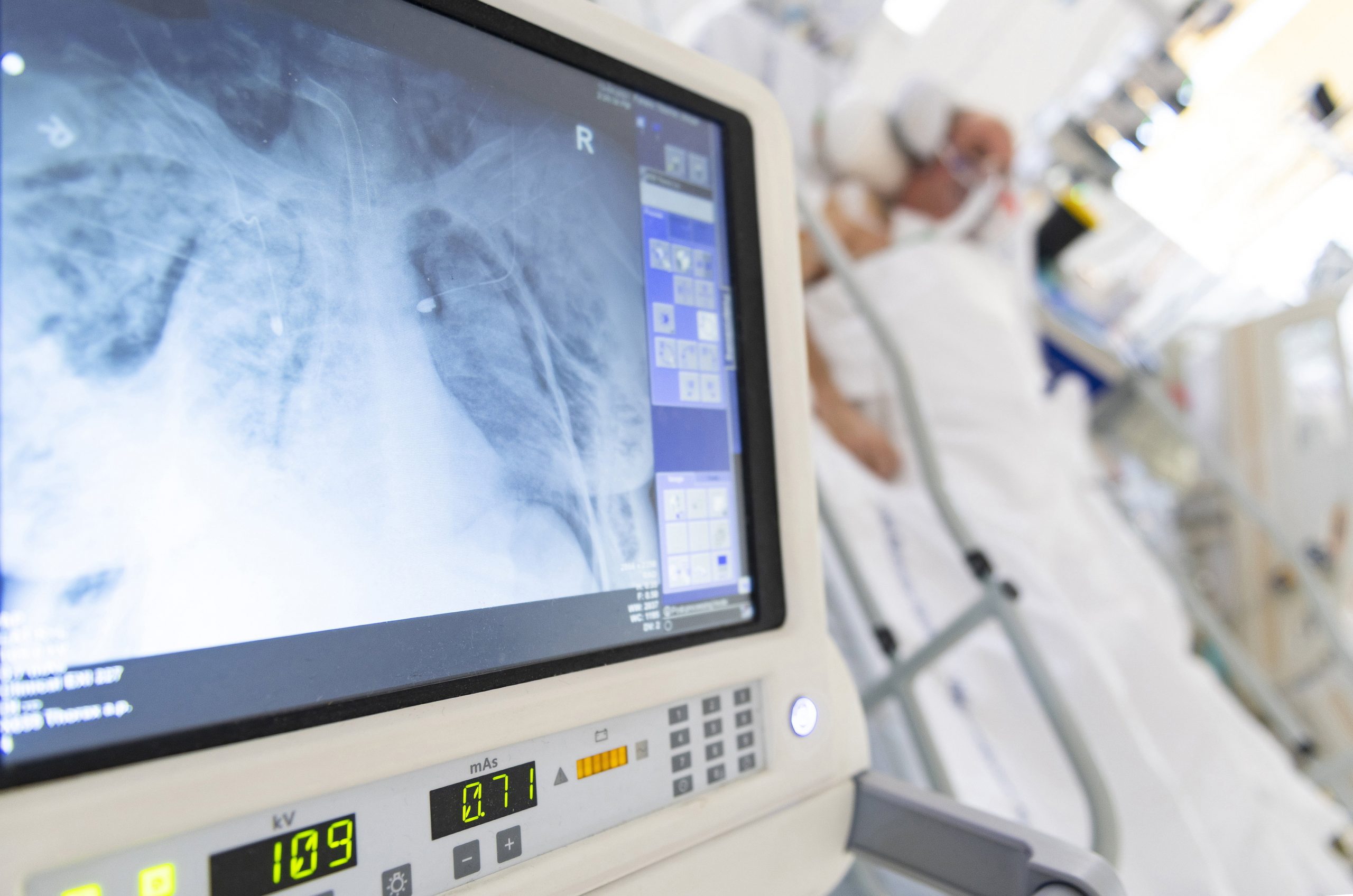
Thirty-seven patients died of Covid over the past 24 hours, while 4,041 new coronavirus infections were registered in Hungary.Continue reading

The independent, professional coronavirus information channel, KOVIDők, led by two researchers from Szeged – Dr. Péter Horváth, computer scientist, and Dr. Bálint Kintses, biologist – asked three doctors about the fourth wave, the delta variant, masks, vaccination, and the virus in general.
The panelists of the Zoom discussion were:
Gábor Zacher said the virus can affect anyone, and more and more young people are being hospitalized, with those who are not vaccinated the most at risk.
The 60% vaccination rate, after the initial big run-up, is not something to be proud of,”
he says. “If you look at the mortality figures so far, Hungary still ranks 6th in terms of deaths per million people. And that doesn’t come across very well in official communications.”
Zacher added that “this is not a political problem, it is primarily a professional problem,” and as all of the panelists agreed and emphasized later during the discussion, we should take the advice of professionals.
Ferenc Jakab said that “we don’t have the faintest idea how such a percentage of vaccination will catch the virus,” because there hasn’t been 60% of the citizens vaccinated before. The September-December period will show us the possible outcome.
Anyone who can tell now when the fourth wave of the epidemic will peak is either using a crystal ball or tarot cards because it’s impossible to tell from the numbers and the data.”
“The delta variant is not known to cause more severe symptoms, only to spread more,” Zoltán Szekanecz said. However, Jakab said that “so far, it doesn’t seem to cause more severe symptoms,” but it is something that still needs to be analyzed because there have also been cases of more serious, even fatal infections caused by the delta variant, according to Jakab.
They agreed that the most important thing is not in the numbers of how many people are infected, but how many of them are in hospitals and how many are severely affected.
Some say that a mask does not protect against delta. Obviously, we know that vaccination protects against serious illness and disease. It does not protect against the person who has been vaccinated carrying the virus in their nose, in their nasal passages. To stop it from passing on, that’s what the mask is for,”
Szekanecz said. He also thinks that there is no balance between the three main pillars of the protection against the virus: vaccination, masks, and testing, meaning that just because certain people are vaccinated, it does not mean that wearing masks and getting tests should be stopped.
Jakab recommends a third vaccination for everyone. As time passes, antibody levels in the body decrease, and it is very important to maintain this, he says.
Szekanecz agreed, but said that while it is important for everyone, there are some people for whom it is particularly important: those who are in a crowded, confined space, chronically ill, the elderly, obese, or immunocompromised. They need the third dose first.
He added that infection generates a greater immune response than vaccination. This is especially the case when there has been an infection and then both vaccines were given to the patient. It is therefore questionable whether a third vaccination is needed in such cases, and should be investigated.
The two doctors agreed that there is no such thing as having too high of an antibody level, but there is a level too low. Therefore, even those who know that they have a high level of antibodies in their system should get a third vaccine so the protection is even more sufficient.
Szekanecz said that many of those working in vaccination centers say that everyone should get an mRNA-based vaccine as a third vaccine, and added that the third Pfizer triples the antibody level. He also said that those who receive a different type of vaccine than before may have more serious side effects.
However, Zacher advised that we should keep in mind that most doctors at vaccination points are usually residents and not highly experienced professionals.
Jakab says there is only “one golden rule: no vector after vector.” This means people who got the AstraZeneca, Sputnik, or the Janssen vaccine cannot get the same one as their third dose.
According to Jakab:
Vaccination does not protect you from catching the virus, it protects you from being hospitalized and having a serious infection. Of course, there are always exceptions.”
Szekanecz addressed those who think they get the infection from vaccinations: “Either you caught it at the vaccination point, or you had it when you went for the vaccination, or you hadn’t developed immunity after the vaccination yet,” but it’s certainly not the vaccination itself that makes someone infected, he emphasized. Szekanecz added that the virus causes many more complications than the side effects of vaccines. But people should not think that companies do not monitor side effects- they are constantly being reported.
Jakab gave an example regarding the matter: “If I go to my GP because I have high blood pressure, he gives me a prescription to take this, the latest medicine, then I go to the pharmacy, I get it, I take it, and I’m happy because my blood pressure is down. And not once do I ask the question, either to the doctor or in the pharmacy, whether in twenty years’ time the pill will have any side effects on me. So why are we asking it now?”
Zacher agreed, saying that the best example regarding this is the contraceptive pill, where there was no way of knowing whether there would be side effects if women took it for 10-15 years. He says that they could name some of the active substances that have been put on the market and then removed because it was found that there was a direct link between the use of the medicine and the death of a person. He noted that “new variants can grow out of areas where there is a low level of vaccination.”
Zacher stated that “in the case of memory impairment, there is no change, the sense of taste comes back much sooner than the sense of smell in many cases. There is no kind of therapy that will bring that back for sure. Taking Omega 3, and vitamin A nasal drops, olfactory therapy: smelling pungent essential oils (20-25 seconds, several times a day) might help. Patients often complain about rapid heart rhythm disturbance, “as if they could feel their own heart beating, which normally we do not feel.” Zacher added that these symptoms can recur for a very long time and can be kept relatively well under control with certain medicines, even with stress relievers. However,
Lung damage is something we can’t really do much about.”
He said that in particular, those who are on ventilators for long periods of time suffer from a chronic state of breathing difficulty and other complications.
Jakab emphasized that this is a very sensitive topic and he can only give his own, subjective opinion. He thinks that clinical examination is very important and only after can a decision be made. Dosage as well as potential side effects for children are very important to figure out first. Unfortunately, children are very affected by the delta variant, which is to be expected in Hungary, according to him.
“The big companies do very serious tests on thousands of children before they bring this in. So it’s not like they’ve said that if it works on adults, it must work on children,” Szekanecz said, adding that children are also often the carriers of the virus.
As was in the news before, it has been mentioned that the widely available azelastine nasal spray containing azelastine, an anti-allergy substance, could revolutionize COVID-19 treatment. However, Jakab spoke of this only in hypothetical terms, but he is encouraged by the results of the trials so far.
At the end of the discussion, Ferenc Jakab asked everyone to listen to the experts and get vaccinated.
The full video of the discussion can be seen here.
Featured photo illustration by Attila Balázs/MTI